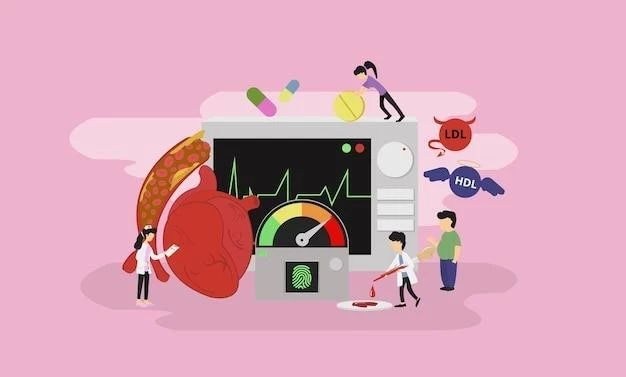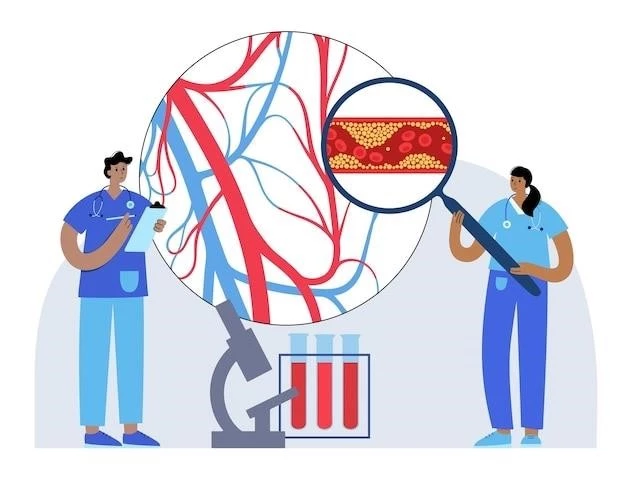Disease ‒ Malignant Hyperthermia Susceptibility Type 3
When it comes to Malignant Hyperthermia Susceptibility Type 3, understanding the rare genetic mutation causing potentially fatal reactions to anesthesia and drugs is crucial. Stay informed about the emergency treatment and the inherited autosomal dominant nature of this disease. Seek genetic counseling for guidance.
Understanding Malignant Hyperthermia (MH)
Malignant Hyperthermia (MH) is a rare, potentially fatal reaction to certain anesthesia and drugs. In MH Type 3, a genetic mutation affects the ryanodine receptor in skeletal muscle, leading to uncontrolled muscle contractions and a dangerous increase in body temperature. This inherited autosomal dominant condition can be triggered by specific medications in susceptible individuals. Understanding the symptoms is crucial for timely diagnosis and emergency management. It’s essential to be aware of the implications of MH Type 3 and seek medical advice if there is a family history of the condition. Stay informed about the latest advancements in research and treatment options for MH Type 3 to empower yourself and your loved ones.
Genetic Basis of MH Type 3
Malignant Hyperthermia Susceptibility Type 3 is driven by a genetic mutation affecting the ryanodine receptor gene (RYR1) located on chromosome 19. This mutation alters the function of the ryanodine receptor, a key component in regulating calcium release in skeletal muscle. Individuals carrying this autosomal dominant mutation have an increased susceptibility to developing MH during exposure to triggering agents such as specific anesthetics and stressors. Genetic testing can confirm the presence of the mutation, aiding in diagnosing MH Type 3 and helping healthcare providers tailor treatment strategies. Understanding the genetic basis of MH Type 3 is essential for individuals and families to make informed decisions regarding potential risks and preventive measures. Consult with genetic counselors to explore your genetic profile and implications for MH Type 3 inheritance within your family.
Ryanodine Receptor and Muscle Contractions
The ryanodine receptor plays a pivotal role in regulating calcium release within skeletal muscle cells. In individuals with Malignant Hyperthermia Susceptibility Type 3, a genetic mutation in the ryanodine receptor gene (RYR1) disrupts its normal function. This disruption leads to abnormal calcium release, resulting in uncontrollable muscle contractions and a rapid rise in body temperature when triggered by specific factors like certain anesthetics. Understanding the intricate relationship between the ryanodine receptor and muscle contractions is vital in comprehending the pathophysiology of MH Type 3. Stay updated on the latest research on how this genetic defect influences muscle physiology to better manage and treat MH Type 3 effectively.
Trigger for MH Type 3
The trigger for Malignant Hyperthermia Type 3 lies in the exposure to specific anesthesia or drugs that activate the abnormal response in individuals with genetic susceptibility. Factors such as volatile anesthetics, depolarizing muscle relaxants, and stressors like exercise or heat can initiate the dangerous cascade of events associated with MH Type 3. It is crucial for individuals at risk to identify these triggers and communicate them effectively with healthcare providers before undergoing any medical procedures. Understanding the potential triggers for MH Type 3 is essential in preventing life-threatening episodes and ensuring a safe medical environment. Stay vigilant and informed about the substances or activities that can precipitate MH reactions, and advocate for your safety and well-being during any medical interventions.
Susceptibility to Anesthesia and Drugs
Individuals with Malignant Hyperthermia Susceptibility Type 3 are particularly vulnerable to adverse reactions to certain anesthetics and drugs due to their genetic predisposition. Prior to any medical procedure, it is vital for individuals and healthcare providers to be aware of this susceptibility. Communication with medical professionals about the underlying genetic mutation and the potential risks associated with anesthesia and specific medications is crucial in ensuring a safe and tailored treatment plan. Stay proactive in informing your healthcare team about your MH Type 3 status to prevent any complications during surgical procedures or medical interventions. Being knowledgeable about your susceptibility to anesthesia and drugs empowers you to advocate for personalized care that prioritizes your safety and well-being.
Symptoms and Diagnosis
Recognizing the symptoms of Malignant Hyperthermia Susceptibility Type 3 is crucial for prompt diagnosis and management. Symptoms may include rapid heart rate, muscle rigidity, high body temperature, acidosis, and in severe cases, organ failure. If you suspect MH Type 3 or experience these symptoms during or after anesthesia, seek immediate medical attention as it is considered a medical emergency. Diagnosis involves genetic testing to confirm the presence of the RYR1 gene mutation. It is essential to communicate your concerns and family history with healthcare providers to facilitate early detection and appropriate treatment of MH Type 3. Stay vigilant for any signs of MH reactions and advocate for thorough diagnostic evaluations if you suspect you or a family member may be affected by this rare inherited disorder.
Emergency Management
Effective emergency management is crucial in handling Malignant Hyperthermia Susceptibility Type 3 episodes. If a MH reaction occurs, immediate action is essential. The first step is to stop the triggering anesthesia or medication. Implementing cooling measures, administering specific medications like dantrolene to counteract muscle contractions and reduce body temperature, and providing respiratory support are vital components of emergency management. Healthcare professionals must be prepared to address the rapid onset of symptoms to prevent severe complications. Educate yourself and your loved ones on the emergency protocols for MH Type 3, and ensure that healthcare providers are aware of your condition to facilitate prompt and effective management in case of an emergency. Prioritize safety and preparedness to mitigate the potentially life-threatening effects of MH Type 3.
Treatment Options
When managing Malignant Hyperthermia Susceptibility Type 3, prompt and appropriate treatment is essential. The primary treatment for MH episodes is the administration of dantrolene, a medication that targets abnormal muscle contractions and helps lower body temperature. In addition to dantrolene, supportive measures such as cooling techniques and respiratory support may be necessary to stabilize the individual during an MH crisis. It is crucial for healthcare providers to be well-equipped and trained to handle emergency situations related to MH Type 3. Stay informed about the available treatment options, communicate your medical history and MH status with medical professionals, and work together to create a comprehensive treatment plan tailored to your individual needs. Being proactive about treatment options can help ensure a better outcome in managing MH Type 3 episodes.

Rare Nature of MH Type 3
Malignant Hyperthermia Susceptibility Type 3 is a rare genetic disorder, making it essential to raise awareness about this condition. Due to its infrequent occurrence, healthcare providers may have limited experience in diagnosing and managing MH Type 3. Individuals and families affected by this rare condition should seek out medical professionals with expertise in treating MH and ensure they are informed about the specifics of MH Type 3. Engage in advocacy and awareness efforts to educate the public and healthcare community about the signs, symptoms, and implications of MH Type 3. By highlighting the rarity of this disorder, you can contribute to improving diagnosis, treatment, and support for individuals facing Malignant Hyperthermia Susceptibility Type 3.
Genetic Counseling and Family Planning
Genetic counseling is crucial for individuals with Malignant Hyperthermia Susceptibility Type 3 and their families to understand the inheritance pattern and implications of the condition. By consulting with a genetic counselor, you can gain insights into the genetic aspect of MH Type 3, assess the risks of passing the mutation to future generations, and explore family planning options. Genetic counseling provides a supportive environment to discuss genetic testing, treatment considerations, and the psychological impact of living with a hereditary disorder. If you are considering family planning or have concerns about the genetic implications of MH Type 3, seek guidance from a genetic counselor to make informed decisions about your reproductive health and family’s well-being.
Research and Advancements in MH Treatment
Staying informed about the latest research and advancements in Malignant Hyperthermia (MH) treatment is essential for individuals with MH Type 3 and healthcare providers. Ongoing research is focused on understanding the underlying mechanisms of MH Type 3٫ developing innovative treatment strategies٫ and improving patient outcomes. By staying abreast of new developments in the field٫ individuals affected by MH Type 3 can advocate for personalized care and access cutting-edge treatments. Engage with research institutions٫ advocacy organizations٫ and healthcare professionals to stay informed about clinical trials٫ emerging therapies٫ and best practices in managing MH Type 3. Your involvement in the research community can contribute to the progression of MH treatment options and help shape the future of care for individuals with this rare genetic disorder.
Preventative Measures for MH Susceptible Individuals
For individuals at risk of Malignant Hyperthermia Susceptibility Type 3, taking proactive preventative measures is paramount in minimizing the likelihood of MH episodes. Communicate your MH status with healthcare providers before any medical procedures involving anesthesia. Ensure that medical teams are aware of your susceptibility to MH and have emergency action plans in place. Avoid triggers such as specific anesthetics known to induce MH reactions whenever possible. Stay well-informed about your genetic predisposition and educate yourself on the signs and symptoms of MH Type 3 to recognize potential risks early on. By implementing preventative strategies, staying vigilant during medical interventions, and advocating for personalized care, you can reduce the chances of experiencing adverse MH reactions and ensure your safety and well-being.
Support Networks and Resources
Accessing support networks and resources can be invaluable for individuals and families affected by Malignant Hyperthermia Susceptibility Type 3. Seek out MH-specific support groups, online forums, and advocacy organizations to connect with others who understand the challenges of living with this rare condition. These networks can provide emotional support, share experiences, and offer valuable insights into managing MH Type 3 on a day-to-day basis. Additionally, leverage resources such as informational websites, educational materials, and expert guidance from healthcare professionals specializing in MH to empower yourself with knowledge and tools to navigate the complexities of the disorder. By engaging with supportive communities and utilizing available resources, you can enhance your resilience, well-being, and quality of life while living with Malignant Hyperthermia Susceptibility Type 3.
Patient Advocacy and Awareness
As a patient with Malignant Hyperthermia Susceptibility Type 3٫ advocating for yourself and raising awareness about this rare condition are crucial steps in promoting better understanding and support. Share your story٫ educate others about MH Type 3٫ and advocate for improved safety protocols in healthcare settings. Participate in advocacy campaigns٫ support research initiatives٫ and engage with policymakers to influence policies that enhance the care and treatment of individuals with this genetic disorder. By becoming a vocal advocate for MH awareness٫ you can help empower others٫ drive positive change in medical practices٫ and foster a more informed and supportive community for individuals living with Malignant Hyperthermia Susceptibility Type 3.
Conclusion⁚ Empowering Those with MH Type 3
In conclusion, individuals with Malignant Hyperthermia Susceptibility Type 3 have the power to take control of their health and well-being by staying informed, proactive, and engaged. By understanding the genetic basis of MH Type 3, recognizing potential triggers, and advocating for personalized care, you can navigate the challenges of this rare condition with confidence. Utilize the support networks, resources, and advocacy platforms available to connect with others, share experiences, and drive awareness about MH Type 3. By empowering yourself with knowledge, seeking appropriate medical care, and fostering a supportive community, you can enhance your quality of life, promote better outcomes, and inspire positive changes in the management and treatment of Malignant Hyperthermia Susceptibility Type 3.
